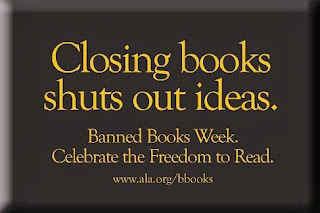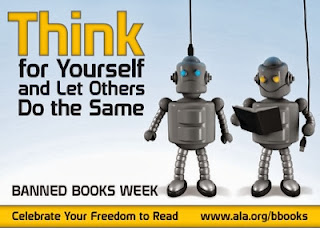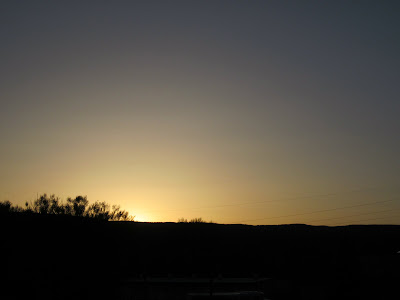Why Banned Book Week Still Matters
They say not to feed the trolls, but I can't help it. I've been baited, so I'm turning it into a chance to bring visibility to a subject about which I'm passionate: book banning.
September 22-28 is National Banned Books Week, and I was pleased to see that a site I frequent recognized it. This site usually has some civil, intelligent discussions, but there are always a few who have to bring it down, as on any site.
This particular troll started out innocuously enough, wondering why they were called "banned" if you could still get them elsewhere. A simple misunderstanding of the word is where it all began. But after several people pointed out the error of the troll's ways, he/she began to talk about book banning as if it wasn't a big deal. In shop/library displays, perusers run across books that were drilled into them in tenth-grade English class, so what's "banned" about it? You can still get a book, even if the library doesn't carry it anymore, so who cares? "It doesn't matter if they stop carrying it" seemed to be his/her main point.

Hello. I'm a novelist, reader, librarian, bookseller, English major, and editor, here to tell you that I care, and so should you.
First, let's form an understanding of the term "book banning." Banning a book can have consequences at many levels. As we in the United States know it today, a ban means that you can't get a book from your local library (most often K-12 school library), bookstore, or sometimes even in your whole town. If you ask for a banned book, you cannot receive it from these institutions because they do not carry it - it has been removed after someone petitioned for its removal.
This level of book banning may seem relatively harmless compared to the myriad countries that not only forbid sale/trade of a title, but will kill or imprison you for possessing or talking about it. True - the American form of book banning is small potatoes compared to threat of death and dismemberment. But I would argue that book banning at any level is troublesome, detrimental, and a challenge to the First Amendment.
Let's start with the most common method of book banning: a parent is upset about a book's content and makes enough of a fuss that its teaching/existence in a classroom or a whole school is prohibited. The reasons for this are understandable and sympathetic, in most cases. A book like Lolita can be categorized as pornography for its statutory rape and pedophilia. The Perks of Being a Wallflower involves lots of drug use and adult concepts. Harry Potter is the number one banned book of 2000-2009 because parents don't want their children exposed to the concept of magic or subliminal gayness, because exposure to such an idea might lead a child to witchcraft and false religions, or even being gay.
But what is the point of a school?
Schools give children a safe place to learn. They present knowledge and ideas from many different corners of the world. They are a place to discuss those ideas and to question that knowledge, where you can form opinions and learn who you are. Grade school is especially important because younger children are impressionable blank slates, and high schoolers have some ideas formed, but are still malleable. What better time to introduce a young person to controversy?
The point of a school is to learn that reading about gay people doesn't make you gay; reading about drugs won't turn you into a junkie. What reading about these books does, in grade school, is to provide a platform on which to have a safe, rational discussion about the issues that are brought up in a book. School is a place where you can talk about drugs and decide that you don't want to use them, or that it's not a black-and-white issue. It's a place to learn about the consequences of unprotected sex from someone who knows what is truth and what is rumor, when you may not have known otherwise.
The point of a school is to learn.
The importance comes across in the manner of teaching - both by the teacher and the parent. If a parent is concerned about the literature being taught at school, or the books a child is checking out from the library, then a discussion needs to take place, parent to child. The parent cannot simply leave it up to the teacher or librarian and then have the audacity to restrict his/her teaching abilities.
Besides, if parents know anything, they should know this: forbidding something just makes it more interesting to children. If they really want to read a book, they will find a way.
Beyond that, Banned Book Week is about celebrating the fact that we can read these books and not have a fatwa issued on us. We can read without being thrown in prison, or having our families tortured.
And that is a fact worth celebrating.






Comments
Post a Comment